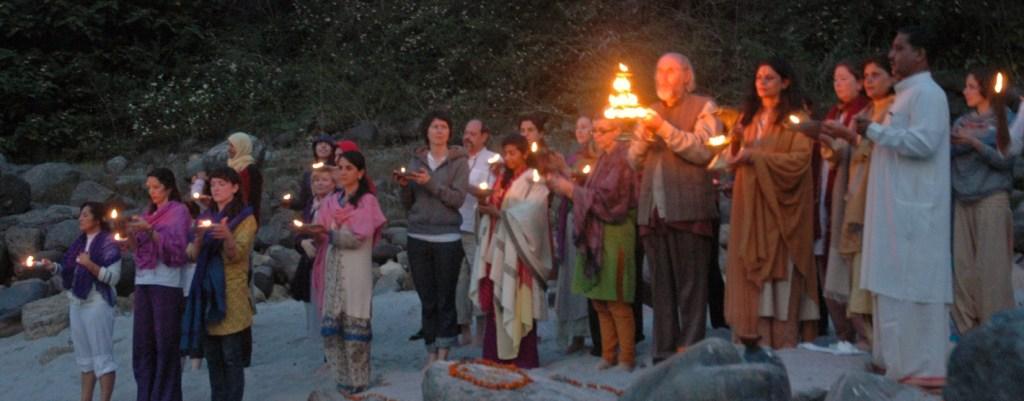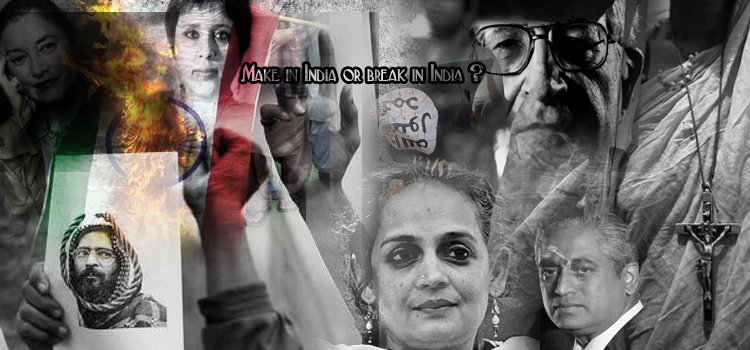Western colonialism did not die after the end of World War II when the West gave up its colonies. It merely changed to a more subtle form, which may prove more harmful to non-Western cultures in the long run.The expansion of Western culture has continued at an accelerated rate along with the denigration and decline of non-Western civilizations and their religion, art, literature and customs.This new colonialism has taken on several new faces or, rather, new masks. It masquerades itself through democracy, internationalism, free trade and humanitarianism.In the name of modernization and globalization it pretends to be uplifting peoples whom it is really exploiting and whose culture it is eliminating.This is not different than colonialism originally, which vaunted itself as the bringer of civilization and culture to the uncivilized world.
The Colonial Era
 In the colonial era colonial expansion worked through military, economic, and religious methods. Military force was the primary and initial method, with European armies invading and conquering, usually by the force of superior arms, other countries and peoples who had committed no real aggression against them. This was often little more than organized banditry, stealing the gold, jewels, and other treasures of these different lands. Economic exploitation went hand in hand with the military conquest, following in its footsteps, stooping so low in its methods to get involved with the drug and slave trades. After all it was generally the riches of these countries, whether imaginary or real, like the gold in America that spurned on the armies and gave them the promise of reward.
In the colonial era colonial expansion worked through military, economic, and religious methods. Military force was the primary and initial method, with European armies invading and conquering, usually by the force of superior arms, other countries and peoples who had committed no real aggression against them. This was often little more than organized banditry, stealing the gold, jewels, and other treasures of these different lands. Economic exploitation went hand in hand with the military conquest, following in its footsteps, stooping so low in its methods to get involved with the drug and slave trades. After all it was generally the riches of these countries, whether imaginary or real, like the gold in America that spurned on the armies and gave them the promise of reward.
 Or the land itself became the gift for new settlers, as in the case of the American continent that was not highly populated. Economic exploitation gradually moved from outright robbery, after the riches of the country were already taken, to dominating the natural resources and controlling the economies of these lands for more long term gains, like the British rule in India and China. Eventually even the articles of daily life in these regions were controlled for profit rendering the peoples of these nations dependent upon foreign rule for their very livelihood.Religion provided the needed justification for this cruel plunder. After all heathens really don’t have to be treated like human beings. Christianity was based upon an idea, which few Christians ever questioned, that Christianity was the only true religion. All other religions had to be eliminated to save the souls of mankind.
Or the land itself became the gift for new settlers, as in the case of the American continent that was not highly populated. Economic exploitation gradually moved from outright robbery, after the riches of the country were already taken, to dominating the natural resources and controlling the economies of these lands for more long term gains, like the British rule in India and China. Eventually even the articles of daily life in these regions were controlled for profit rendering the peoples of these nations dependent upon foreign rule for their very livelihood.Religion provided the needed justification for this cruel plunder. After all heathens really don’t have to be treated like human beings. Christianity was based upon an idea, which few Christians ever questioned, that Christianity was the only true religion. All other religions had to be eliminated to save the souls of mankind.
Other religions, including compassionate systems like Buddhism or sublime philosophies like Vedanta, were little more than idolatry and superstition to be swept aside in the noble Christian pursuit of salvation. Such missionaries felt that this effort to save souls justified any military and economic coercion that might go along with it, however unpleasant that might be.The logic was inevitable. If mine is the only true religion and those who don’t accept it are condemned to eternal damnation, my duty is to impose this religion, like a medicine a child does not want to take, on all people for their own benefit regardless whether they like it or not.
 This alliance of armies and missionaries lasted well into the twentieth century and left its mark of genocide in America, Africa and Asia that has left many peoples, like the Native Americans, deeply psychologically scarred. Along with religion came the rest of Western culture, thought and customs and the end of traditional ways of life. Non-Christian, that is non-Western religions and cultures, were subverted or eliminated. The new converts to Christianity were encouraged not only to give up their religion but their culture, which often had religious or spiritual implications well. A good Christian convert would dress like a European and emulate European manners in all things. In India Hindus converted by the British to Christianity were encouraged to think and live like Englishmen. They were to be English souls and minds in brown Asian bodies.
This alliance of armies and missionaries lasted well into the twentieth century and left its mark of genocide in America, Africa and Asia that has left many peoples, like the Native Americans, deeply psychologically scarred. Along with religion came the rest of Western culture, thought and customs and the end of traditional ways of life. Non-Christian, that is non-Western religions and cultures, were subverted or eliminated. The new converts to Christianity were encouraged not only to give up their religion but their culture, which often had religious or spiritual implications well. A good Christian convert would dress like a European and emulate European manners in all things. In India Hindus converted by the British to Christianity were encouraged to think and live like Englishmen. They were to be English souls and minds in brown Asian bodies.
Yet this missionary activity did at times strive to take a more humanized form. After the colonial armies had pillaged a country, the missionaries came in to comfort the people with Jesus. Missionaries learned that conquered and humiliated native peoples were more receptive to some otherworldly form of succor. Or the missionaries came first with hospitals and orphanages, not just bringing compassion but leading the way for the armies or the merchants, who followed their lead, after the missionaries had undermined the confidence of the people in their own ways.
After these outward forces of colonialism came an intellectual form that was less overt but perhaps more insidious. Native schools and educational systems were eliminated in the place of progressive Western education, even in areas where religion had failed to gain many converts, like India and China.
This gave colonialism the aura of a civilizing influence. It was not exploitation that the Western powers were bringing but progressive Western values, training the people in science, art and technology and teaching them better and more equitable forms of government. Native peoples were helped to learn the skills of genuine civilization, by becoming modern and rational. This was true not only of aboriginal cultures but of older advanced civilizations like India and China, whose culture itself was often put on the level of something primitive that required the ennobling influence of the West.
The Hidden Colonialism of Communism
 Eventually the colonized world began to import not only predominant Western belief systems, like capitalism and Christianity, but minority and antagonistic systems like communism and socialism. At this level a very interesting transformation took place.The Western educated elites of the colonized world, already alienated from their own heritages and yet naturally antagonistic to any foreign domination, gravitated toward such alternative Western systems.
Eventually the colonized world began to import not only predominant Western belief systems, like capitalism and Christianity, but minority and antagonistic systems like communism and socialism. At this level a very interesting transformation took place.The Western educated elites of the colonized world, already alienated from their own heritages and yet naturally antagonistic to any foreign domination, gravitated toward such alternative Western systems.
This was the great appeal of communism in the Third World, particularly Asia where intellectuals wanted a way out of colonial domination but were already too Westernized to discover a solution within their own traditions. Communism allowed colonized peoples to be both Western and anti-Western at the same time, accepting Western ways of thought but opposing the exploitation done by Western powers.
They could challenge Western colonial rule by following revolutionary Western thinkers and aligning themselves with revolutionary elements within Western culture, which could provide them with the education and resources to stage their revolt.This had yet a more damaging effect on traditional cultures. The communists of the Third World came to identify their own native traditions with the very dominant Western traditions that European communist leaders had opposed. They lumped their own traditional hierarchies – their kings, rajas, merchants, monks and mandarins – along with the kings, church, bourgeoisie and bureaucracy of Europe.
They came to look upon their own cultures as their real enemies and eliminated them with the same cruel righteousness that they would a foreign tyrant. They lumped their own non-Christian religions along with Christianity to be opposed, giving their monks and swamis the hatred European communists reserved for the pope and the church.In fact the communists of the Third World became more opposed to their own native religions than to the Christianity that the original Marxists were so against because native beliefs could be a greater challenge to their own coming to power. Not surprisingly Marxism in India has come to recognize Hinduism, its country’s own traditional culture as its main enemy, not capitalism or Christianity.
 This only reveals how inherently antagonistic communism inherently is to non-Western belief systems. It is only the logical outcome of the Western cultural bias inherent in the communist ideology.In short, the non-European communists incarnated not so much an indigenous uprising against colonialism, but rather a rejection of one form of Western cultural domination for another. They embodied the very struggle within the Western world not against world domination, but for which form of Western culture would come to rule the world.
This only reveals how inherently antagonistic communism inherently is to non-Western belief systems. It is only the logical outcome of the Western cultural bias inherent in the communist ideology.In short, the non-European communists incarnated not so much an indigenous uprising against colonialism, but rather a rejection of one form of Western cultural domination for another. They embodied the very struggle within the Western world not against world domination, but for which form of Western culture would come to rule the world.
Instead of defending or excusing the British or French Empires they came to support the Soviet or Chinese communist empires, which were even more tyrannical. Communism itself became a new form of colonial expansion, eliminating native traditions and further promoting Western culture and values, though of an alternative type, Marxism, we must remember, is a European intellectual political system. It promotes European civilization and its materialistic values. Marx and his followers had neither knowledge nor understanding of Hinduism, Buddhism, Taoism or other non-Western religions.Their historical critique was naively Western and European. Marx wrote for the working class of Europe, not the peasants of Asia, whom he did not know.
 Marx was not opposed to Western civilization but felt that communism was its real thrust and gift to the world. He saw communism as the ultimate goal of the entire progressive movement of Western civilization and gave little value to non-Western models or values.The result was that communism became a new power of colonialism and continued the same attack on indigenous cultures that previous missionary and capitalistic forces had set in motion. Communists, with their revolutionary zeal, were often more brutal in suppressing native religions and cultures and left their own mark of genocide that these regions are just beginning to recover from.
Marx was not opposed to Western civilization but felt that communism was its real thrust and gift to the world. He saw communism as the ultimate goal of the entire progressive movement of Western civilization and gave little value to non-Western models or values.The result was that communism became a new power of colonialism and continued the same attack on indigenous cultures that previous missionary and capitalistic forces had set in motion. Communists, with their revolutionary zeal, were often more brutal in suppressing native religions and cultures and left their own mark of genocide that these regions are just beginning to recover from.
While this damage is most evident in China, whose traditional culture communism almost destroyed during its cruel Cultural Revolution, its  effects in India are also extensive, where it crippled the awakening of the nation. Communism in India remains an anti-Indian and anti-Hindu force that wants to eliminate the traditional culture of the region, for a leftist Western model that has already failed in the West.
effects in India are also extensive, where it crippled the awakening of the nation. Communism in India remains an anti-Indian and anti-Hindu force that wants to eliminate the traditional culture of the region, for a leftist Western model that has already failed in the West.
This Marxist colonialism continued the Westernization of the non-Western world. It made the people of distant lands subject not to the old kings and emperors of Europe but to Lenin and Stalin, the communist Czars, who were equally dictatorial and harsh in their ways, and equally foreign in their thought and action.
It made the people believe in not the religious leaders of Europe like the pope or Jesus, but the prophets of communism, Marx and Engels, whose works were promoted with an almost religious fervor.It eventually created native incarnations of these communist leaders and prophets like Mao and Ho Chi Minh, just as the Christians created native saints in foreign lands in order to continue their work of conversion with native help.
Such Asian communists show a model not of awakened Asia but of Asia in a Western mold, following an alien intellectual idealism oblivious to its own spiritual traditions.Along with communism came more of Western intellectual culture and the decline of Asian intellectual systems.
The intelligentsia of Asia read not Krishna, Buddha or Confucius or embraced its indigenous arts and culture but followed Western intellectual and artistic culture of Europe and America, particularly those thinkers who were leftists.
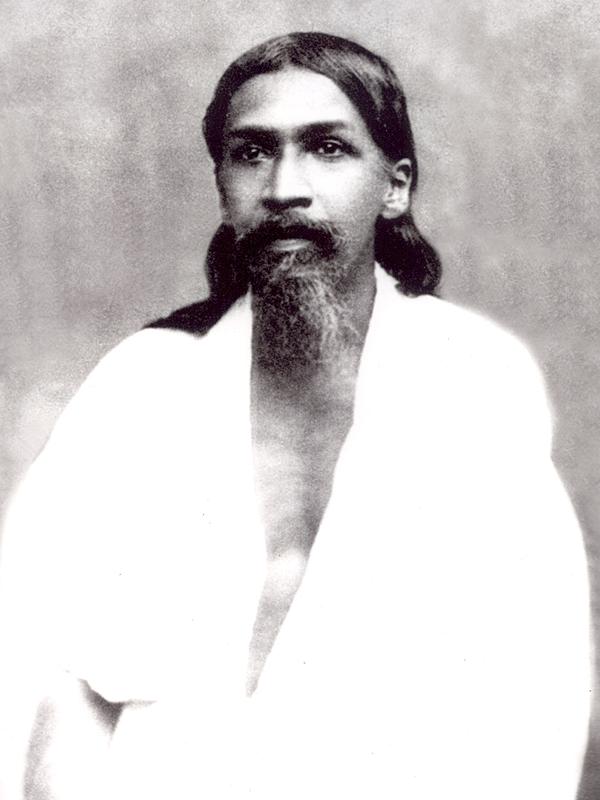 When great modern thinkers arose in Asia outside of the European intellectual sphere, like Aurobindo or Vivekananda in India, they were rejected in favor of European thinkers or European based thinking, like Sarte or Freud. This resulted in an intellectual bankruptcy in Asia in which Asian thinkers have come to think that it is somehow enlightened to blindly imitate the latest trends in Western leftist thought as if this was beyond criticism or error and produce nothing original or insightful of their own.
When great modern thinkers arose in Asia outside of the European intellectual sphere, like Aurobindo or Vivekananda in India, they were rejected in favor of European thinkers or European based thinking, like Sarte or Freud. This resulted in an intellectual bankruptcy in Asia in which Asian thinkers have come to think that it is somehow enlightened to blindly imitate the latest trends in Western leftist thought as if this was beyond criticism or error and produce nothing original or insightful of their own.
The alienated intelligentsia of India in particular prides itself in being more leftist than Western academia, and little interested in the native traditions of Asia, a trend started by Nehru himself. While it has been a fashion for Western intellectuals to look to Asian thought for an alternative to the limitations of Western culture, the intelligentsia of India would never follow suit. It remains against its local traditions, firmly rooted in a European ethos as much as a member of any colonial army ever was.
The New Economic Colonialism
 Yet while the effects of communism still remain, with the fall of Communist Europe its power is waning before a new form of colonialism. The old economic colonialism has taken a new turn in the media age and has become the main force of a new Western cultural expansion. Colonialism is no longer propelled by Western armies but by multinational corporations centered or originated in the West.
Yet while the effects of communism still remain, with the fall of Communist Europe its power is waning before a new form of colonialism. The old economic colonialism has taken a new turn in the media age and has become the main force of a new Western cultural expansion. Colonialism is no longer propelled by Western armies but by multinational corporations centered or originated in the West.
It does not assume the guise of religious or intellectual upliftment for its justification but that of economic liberalization, which has become the new moral excuse for spreading a wasteful consumer culture all over the planet.Economic liberalization is hardly a spiritual or cultural liberalization, freedom or renaissance. It promotes what is primarily a low level and vulgar culture of fast food, fast living, and a sensate media – an outer shallow way of life that destroys any deeper or contemplative traditions.
Yet should anyone protest against the evils of economic liberalization in Asia, they are criticized as being against economic development and therefore culturally backward and probably castist as well!Coca Cola, McDonalds and Kentucky Fried Chicken are nothing but new incarnations of the East India Company and other colonial corporations. While Western intellectuals commonly criticize such commercialism in their own countries, the intellectuals of the East are quite hesitant to do so in order not to encourage their countries to remain backward and so as not to encourage any revival of their traditional culture that they perceive as backward.
 The colonialism of the media is perhaps the most invasive form of the economic colonialism because it enters directly into the homes and minds of the masses. Through the subtle influence of advertisement, it implants an alien mindset and new desires into people, making them unhappy with their traditional lives, families and cultures.Its effects are stronger and more immediate than those brought about by controlling the educational systems. It is nothing short of a new form of brainwashing, eliminating older cultures and making every land into a new market place for the latest gadgets or glamour.
The colonialism of the media is perhaps the most invasive form of the economic colonialism because it enters directly into the homes and minds of the masses. Through the subtle influence of advertisement, it implants an alien mindset and new desires into people, making them unhappy with their traditional lives, families and cultures.Its effects are stronger and more immediate than those brought about by controlling the educational systems. It is nothing short of a new form of brainwashing, eliminating older cultures and making every land into a new market place for the latest gadgets or glamour.
 This economic colonialism wears the mask of technological advancement. Third World countries have been given the idea that to advance in technology they must take Western commercial culture along with it – that without potato chips from the West they cannot get or perhaps will not be able to use computer chips! Any criticism of this new commercial exploitation is portrayed as anti-technology or anti-science.
This economic colonialism wears the mask of technological advancement. Third World countries have been given the idea that to advance in technology they must take Western commercial culture along with it – that without potato chips from the West they cannot get or perhaps will not be able to use computer chips! Any criticism of this new commercial exploitation is portrayed as anti-technology or anti-science.
And of course the multinational corporations, like the previous colonial and missionary forces, do help the people who side with them and can reward them with a better income, better housing, or better schooling for their children, endowing their company with a progressive appearance.Yet global economics does level the playing field somewhat and is not as geographically biased as military colonialism.
Asians can become successful in the economic field and can learn to use it to promote their own cultures, if they retain any respect for them, building temples in their own countries or in the West where they have immigrated for economic reasons. In this regard multinational business is potentially more nationally neutral than the older colonialism, though it remains wedded to materialism and destructive of spiritual values. It is even possible that in time the West will lose economic control of the world, but the Asians who take it over may still be shaped by Western commercial values and not their own traditions unless they work hard to preserve these.
The New Intellectual Colonialism

sheldon pollock
The intellectual colonialism has also taken a new turn. Western academia, up to World War II, commonly defended colonialism, denigrated traditional cultures, and rewrote history in a European image, praising the West as the true force of civilization. The exploitation, genocide and slavery promoted by colonialism were largely ignored. The exception to this was Leftist intellectuals who criticized colonialism but not in favor of traditional cultures but in favor of Marxism, which masked only another form of colonialism as we have already observed.
Today the same academic establishment not only claims to have given up the colonial mindset, but also pretends to offer the alternative to it. Western academia now tries to represent a new global view that honors all people, which it projects through its new practice of multiculturalism. It speaks of a universal culture of human rights, promoting a new world order of democracy, economic opportunity, and class equality that helps everyone and all nations.
It wants to make available the advances of science and technology for the benefit of all nations, giving each individual the pleasures and conveniences of modern civilization.While these ideas at first glance appear broad minded and compassionate and may have some benefits, if we look deeply we see that they still hide the same old patronizing way of thought that promotes Western civilization over all others.
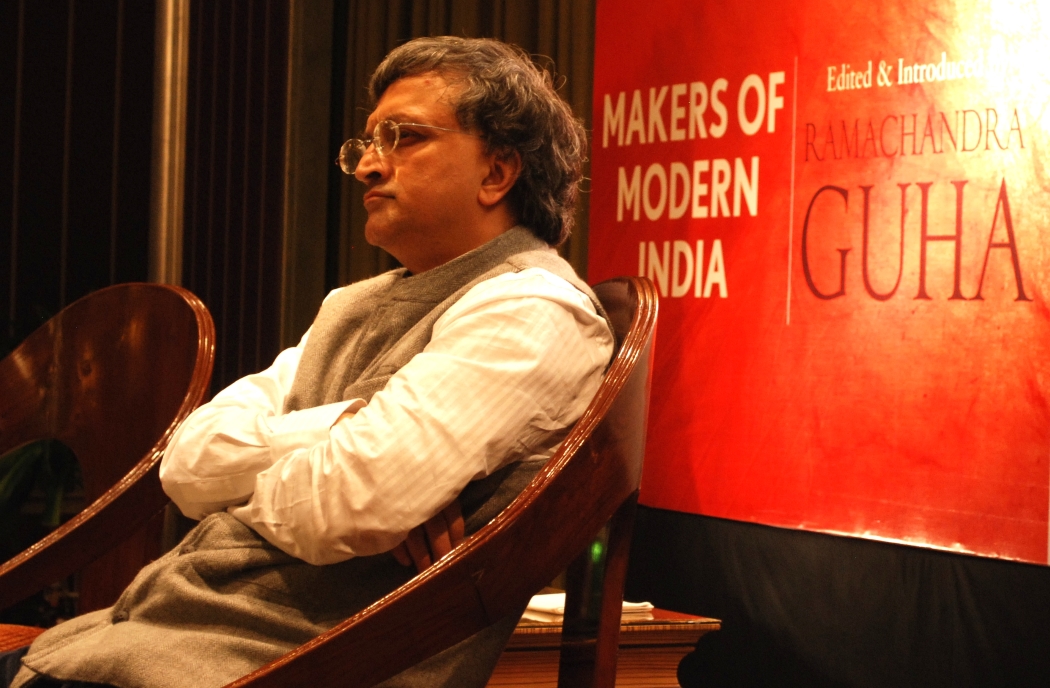
ramachandra guha
The dominant image is not traditional people happily following or advancing their own older cultures, but solving their problems by imitating Western economic, political and intellectual practices.Just as the missionaries converted Asians to Christianity and changed how they thought, dressed and acted, so too Western multiculturalism consists of people of all cultures following Western intellectual and political models.
It does not recognize the validity of other cultural or spiritual models, but merely promotes Western commercial and intellectual civilization for everyone. Its multiculturalism is but a mask for all cultures becoming Westernized, with people all over the world dressed in blue jeans, drinking coca cola, and indulging their senses, as if this was somehow elevating to everyone.
If it promotes culture in a deeper sense it is having people all over the world pursuing Western art and intellectual culture, listening to symphonies, or reading Shakespeare to the neglect of their own traditions. Western intellectuals have become the leaders and prophets of multiculturalism, which strangely excludes the great thinkers of non-Western cultures, whether of ancient or modern times.
This new multiculturalism continues a materialistic definition of humanity and one dominated by modern European values and perceptions. It has also become part of the latest leftist agenda, which continues Marxist ideas under so-called progressive social agendas of human rights. As a form of global Westernism, the new multiculturalism has begun to dissect and dismember what remains of non-Western traditions.
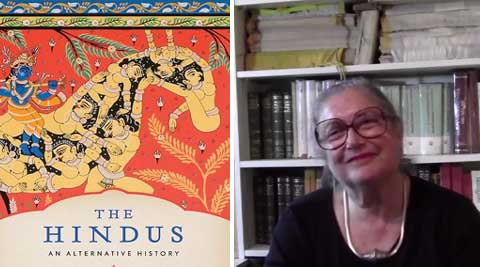
wendy doniger
It sees in Eastern religions little but caste exploitation, oppression of women, backward customs, and religious intolerance. It analyzes Eastern religious leaders according to the tenets of Western psychology and finds them to be unbalanced or sexually disturbed personalities. After all, such individuals do not accept social and economic advancement as the main thing in life and therefore their sanity must be suspect as well!
The new globalism therefore is a pseudo- globalism projecting one model of civilization, though giving it many masks in different countries through people of different races and languages. It ignores the spiritual dimension and futuristic vision of non-Western traditions and reduces them to a medieval image, as if what is non-Western is non- modern, anti-scientific and incapable of any further growth.

William Dalrymple
The same Western groups whose armies occupied the Third World until recently, and whose businesses continue to dominate them economically, now criticize the countries they have long victimized for not living up to the Western moral standards of a free society ! Just the as old colonialism had its facade of modernism and Christian compassion, so does the new colonialism have its facade of economic opportunity and democracy.
Western academics fail to see how much they are promoting a Eurocentric view and ignoring other perspectives. They portray themselves as the defenders of minorities or the oppressed all over the world, while at the same time they ignore the cultural achievements and spiritual values of these same peoples. They may be trying to help the oppressed economically or politically but they are often destroying their culture and spiritual traditions along the way.
This liberal Western humanism has become predominant in universities all over the world. Eastern intellectuals naively pick up these new trends in Western thinking and fail to see how much they remain intellectual slaves of the West. Western humanism has become the religion of the mass media as well, which likes to highlight human rights violations in non-Western countries. The newspapers of India promote these views, criticizing the backwardness of their own traditions in favor of communist or capitalist models that are hardly enlightened or refined. These are taken as inevitable side effects of growth, but they reflect this progressive economic exploitation of the planet, and the reduction of human beings to mere commodities or vote banks.
The Academic Historical Colonialism

Thomas Babington Macaulay
A remarkable continuity has existed between missionary academia of the nineteenth century, which denigrated non-Western cultures out of religious biases, Marxist academia of the mid-twentieth century, which did the same out of political motivations, and the current liberal academia of the late twentieth century, which does so out of social and cultural concerns. This idea was originally promoted with a missionary and colonial fervor to help conquer, divide and convert the Hindus.
The Marxists used it to substitute the European idea of class warfare as the dominant historical movement with an Indian equivalent of caste warfare, which served their interests of seeking political power in the country. Current liberal academicians use it to denigrate Hindu culture as inhumane and promote Western multiculturalism (read Western subordination of other cultures) in India.
All have used it to make the dominant Hindu culture of India a historical fraud. Western academicians, and their Indian imitators, rejected the testimony not only of the ancient Rishis and yogis of the country but that of modern sages like Aurobindo, who did not accept this idea.

Michael Witzel
In other words, in interpreting the history of India they simply rejected what the country itself had to say useless, substituting their own voice. Is this not cultural arrogance? Today after several decades of new discoveries current archeology lends no support to the Aryan Invasion view.
It shows an organic development of civilization in India from the Mehrgarh site in Pakistan, which dates to before 7000 BCE, with no major intrusions of outside peoples, such as the Aryan Invasion theory requires, to the first millennium BCE. The great Sarasvati river of Vedic fame has been remapped and proves to be the main center of habitation in both Harappan and pre-Harappan eras (4000 – 1900 BCE).
This river, lauded in the Vedas as the home of Vedic culture and delineated in great detail, dried up after a series of geological changes around 1900 BCE, marking the terminal point of the Harappan culture. This relates Vedic culture to the earliest civilizations in India well before the so-called Aryan invasion of 1500 BCE. After more than a century of searching there has proved to be no real evidence for any Aryan invasion of India, whether movements of people, skeletal remains, destroyed cities, pottery types, burial customs, or anything of the kind.
Yet rather than welcoming this new information, and using it to examine traditional Hindu historical accounts in a more equitable manner, many academicians are refusing to draw any conclusions from it. Or they are trying to subvert it by pretending that since there is no evidence of an Aryan invasion that it must have occurred in a way that left no traces, that no evidence for it is required because it is proved on another level!

Irfan Habib
Some would use linguistic speculation alone, without evidence or contrary to the evidence, to promote this view. But modern linguistic speculation cannot be substitute for or override firmer archeological and literary data.This is not to suggest that academicians are operating out of intentional distortion, though Marxist historians are well known to do this.
They may be so conditioned by a Eurocentric mindset, by an educational agenda to promote Western culture and, perhaps, by a sincere belief that Western culture is the best thing for all countries that it is hard for them to accept any real greatness to the civilization of India.
The commonality of Indo-European languages and cultures might make even ancient Europe an offshoot of Hindu and Vedic culture. What a nightmare that would be to the Western mind taught to emulate Near East, Greece and Rome as the source of true civilization!It is not my purpose here to tackle this issue in depth but merely to show it as one of the masks of colonialism.
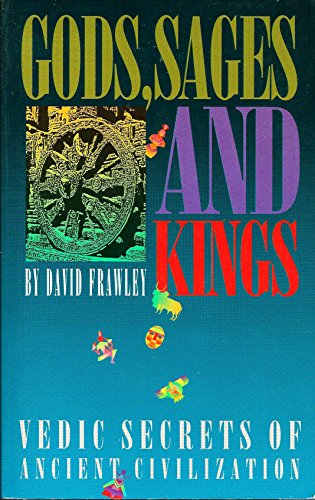 I examined the topic elsewhere and many other new accounts of the matter can be examined for more information, notably S.P. Gupta (The Indus-Sarasvati Culture), B.B. Lal (The Earliest Civilization in South Asia), S.R. Rao (Dawn and Devolution of the Indus Civilization), my own and coauthored works (Vedic Aryans and the Origins of Civilization, Gods, Sages, and Kings, The Myth of the Aryan Invasion, and In Search of the Cradle of Civilization).Nor do I mean to say that academics cannot change and have no valuable insights.
I examined the topic elsewhere and many other new accounts of the matter can be examined for more information, notably S.P. Gupta (The Indus-Sarasvati Culture), B.B. Lal (The Earliest Civilization in South Asia), S.R. Rao (Dawn and Devolution of the Indus Civilization), my own and coauthored works (Vedic Aryans and the Origins of Civilization, Gods, Sages, and Kings, The Myth of the Aryan Invasion, and In Search of the Cradle of Civilization).Nor do I mean to say that academics cannot change and have no valuable insights.
Currents of scholarship exist within academic groups that can see beyond such colonial motivations and have been questioning them in various contexts, including the history of America, where the genocide of the native population was long excused as a civilizing influence. If they make the effort, these individuals can discern the same distortions relative to India, which as a very different cultural and religious sphere than the Western could hardly be understood by nineteenth century European scholarship from which these ideas arose.
A new non-colonial, non-Eurocentric scholarship, and one sensitive to the spiritual traditions of the planet, is required to really take humanity forward into an age of consciousness beyond all materialist and political machinations.
Missionary Colonialism Continuing
The missionary colonialism meanwhile continues as well. The same old hell, fire and brimstone preachers of evangelical Christianity are hard at work throughout the world.
While they can no longer use armies to enforce their will, they have learned new tricks to compensate for this hampering of their usual aggression. They have learned to use the media as their tool, with television, radio, and media hyped religious crusades all over the world. Recently they have taken to the Internet, using the computer world to promote the same old fossilized superstitions that are really part of the Middle Ages.
They have taken advantage of democratic systems in the Third World to infiltrate wherever they can under the guise of freedom of religion.The same missionary groups that denied religious freedom to promote conversion in the colonial era, now use religious freedom to promote their agendas in foreign lands.
 When the West has had to vacate its colonies it always encourages religious freedom in them so that the Christians left behind are not subject to discrimination. However there is no apology for the oppression of non-Christians perpetrated during the colonial era! The evangelical groups that are the most active missionaries are usually looked upon in the West, particularly in academic circles, as the product of unenlightened people and are often criticized or made fun of. In the East they prey upon the poor and uneducated who are still vulnerable to their stories of Heaven and Hell and the Second Coming of Jesus.
When the West has had to vacate its colonies it always encourages religious freedom in them so that the Christians left behind are not subject to discrimination. However there is no apology for the oppression of non-Christians perpetrated during the colonial era! The evangelical groups that are the most active missionaries are usually looked upon in the West, particularly in academic circles, as the product of unenlightened people and are often criticized or made fun of. In the East they prey upon the poor and uneducated who are still vulnerable to their stories of Heaven and Hell and the Second Coming of Jesus.
Ways of thought rejected by the educated in the West are seeking to perpetuate themselves in the East by targeting the gullible and defenseless. Strangely Western thinkers and religious leaders don’t seem to mind if their cultural superstitions are foisted on the Third World and are making no efforts to counter it.Yet missionary colonialism has new faces as well. It has also taken up the banner of humanism and human rights.
In some areas, like Central America, the Catholic church has allied itself with leftist forces, and claims to represent the rights of the very indigenous peoples that it has through the centuries sought to dominate and whose culture it has decimated. In other areas Catholicism has softened its appeals, no longer claiming that non-Christian religions are useless but willing to honor them as stepping stones to Christianity.

Christian Missionaries disguised as Hindu Swamis
Catholic priests in India dress up as Hindu Swamis in order to afford a more indigenous appeal to their conversion efforts. The strange thing about this sentiment is that the Christians don’t see how condescending it is and that it is really no different than their previous snobbery. Whether you call a person of different religious persuasion a heathen or credit him with making it to the level of a half-Christian, you are still only defining him in your own image.
The media continues to excuse the missionaries as well. When non-Christians try to counter aggressive Christian conversion efforts occurring within their own countries it is portrayed by the modern media as somehow intolerant and contrary to freedom of religion. It is as if in spite of the brutal history to the contrary, there is nothing suspect about such conversion efforts and they have no negative impact on other cultures and religions.
Military Colonialism
Colonial occupation forces at first glance appear to have left the world, but if we look a little closer, this is not the case either. The United Nations tries to police the world. Yet if we look at its composition it is not a world body, but dominated by Western nations – the United States, Britain, France and Russia – which constitute the permanent members of the UN Security Council.
 These are the same old primary colonial powers of the earlier part of the century. The United States itself often unilaterally takes upon itself the role of policing the world. While it calls this enforcing democracy and human rights, it is often little more than protecting American vital interests, which are economic, as in the case of the Gulf War where no democracy was being defended (no country in the region being a democracy!). Economic interests mean the freedom of affluent countries to enter into and exploit poor countries for their raw materials.
These are the same old primary colonial powers of the earlier part of the century. The United States itself often unilaterally takes upon itself the role of policing the world. While it calls this enforcing democracy and human rights, it is often little more than protecting American vital interests, which are economic, as in the case of the Gulf War where no democracy was being defended (no country in the region being a democracy!). Economic interests mean the freedom of affluent countries to enter into and exploit poor countries for their raw materials.
Or let us take the example of Tibet. The West makes a feeble protest about the Chinese destruction of this venerable culture, but quickly bows down before the greater economic interests of trade with China.
 Military colonialism continues not so much will the exporting of armies as with the selling of weapons. The United States remains the greatest arms supplier to the world, selling weapons of mass destruction mainly to dictatorships like Saudi Arabia, and then wants to enforce its human rights code against weaker countries that have no vital economic interests for it.
Military colonialism continues not so much will the exporting of armies as with the selling of weapons. The United States remains the greatest arms supplier to the world, selling weapons of mass destruction mainly to dictatorships like Saudi Arabia, and then wants to enforce its human rights code against weaker countries that have no vital economic interests for it.
A weapons seller, like a drug dealer, can hardly claim to represent human rights or morality, or be any kind of a role model. In fact it is now known that CIA arms shipments to Afghanistan, Nicaragua and Laos were funded by drug money from the heroin trade. This is the dark force behind much of Western values and global interests and its talk of human rights.For example, recently Western countries have taken out patents on medicinal plants that are indigenous to other parts of the world, as if someone could own the wealth of nature itself. Clearly military colonialism is not dead, but only subdued and redirected. Should economic domination fail then the colonial armies may come out again to protect their economic interests as the world already witnesses when the oil supply is threatened.
The Danger of Anti-Westernism
As one sees the proliferation of Western commercial culture and its destructive and debasing effect all over the world one might be inclined to become anti-Western and think that this might provide a solution. One might think that such neocolonialism is the only real problem in the world and being anti-Western will somehow be the solution. However we cannot like the communists look upon colonialism or capitalism naively as monsters, destroying which will save humanity of all ills. This only caused them to create their own more destructive forms of behavior. The continuing dangers of colonialism reflect the dangers of materialistic thinking, seeing the highest human good in economic terms, which inherently stimulates greed.
Unless we cut through the deeper roots of this problem, it will come up again. The new faces of colonialism have arisen because the materialism behind colonialism has not been adequately questioned. There has been an attempt to make economic materialism more benign, but by its very outward nature, it must bring about exploitation and remove any of the finer sensitivities of the human spirit.
This is also not to say that there is no value in modern movements toward human rights, economic development, or technological progress. The problem is that such movements are defined naively and in an unspiritual manner. This allows them to be used by vested interest groups for their own power and profit. Because these movements are formulated according to an understanding that is spiritually backward, they can end up causing more harm than good to the peoples they seek, however sincerely, to help. Colonialism, whether political, economic or religious, is a manifestation of ignorance of the deeper soul and Self of man, and of the real goal of human life, which is not economic good, but liberation (Moksha) from all external limitations.
Without that pursuit of spiritual liberation, the pursuit of economic freedom must result in some partiality, corruption or exploitation because the outer is inherently limited. Economic happiness for all is a myth because the proliferation of external desires only causes more want and hence more misery.Nor is the present global problem simply a clash between East and West or ancient and modern values.
The East has its materialism and it can become more materialistic than the West in time because Orientals are more dedicated in whatever they do. The real question is of the dominant values behind civilization. In this regard European culture lacks the maturity and spirituality to show the way to a real compassionate world order. Unfortunately more mature Asian civilizations have been so decimated by colonialism that they have lost confidence in their own deeper traditions which could save them.
Instead they flounder, often becoming worse than their oppressors, following an even more blatant corruption, materialism and violence. In this regard the West today often looks more moral and spiritual than what is happening in many governments and economies in Asia.Humanity stands at a time of crisis and the present worldwide economic boom may not be a sign of a happy new age but of an impending collapse.
While this may not occur over night, the signs of its eventuality over the next few decades can clearly be seen, unless the course is changed quickly. We are entering a new century of continuing environmental decay and the minds of people are eroding in front of an ever more vulgar mass media. Unless we are prepared to radically alter our ways and work hard to correct the negative forces we have set in motion, we are creating only sorrow for the future of our planet for many generations to come. We must learn to give up all forms of exploitation and strive to heal not only ourselves and our nations, but also our entire planet and all of its creatures.
